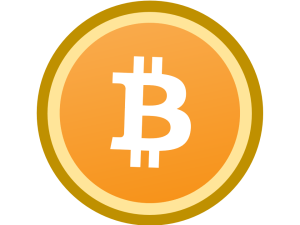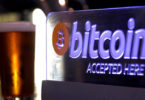One of the world’s newest currencies is merging with one of the world’s oldest. Bitreserve, in partnership with Gold Bullion International, has linked the Bitcoin exchange to the gold standard. This allows customers to store gold in their accounts and convert it to Bitcoin for online purchases.
Are we witnessing modern-day alchemy? What will this mean for the future of e-commerce?
Bitreserve is making a unique move, considering how many global currencies have already abandoned the gold standard in recent decades. However, if Bitcoin hopes to attract enough users to make it viable in the mainstream marketplace, adopting the gold standard should help create an environment that attracts those outside the world of speculative investing.
When it comes to the average consumer, however, one glaring question stands to reason: Why would anyone go to all of the trouble to use Bitcoin when e-wallet services like Paypal and Apple Pay are extremely easy to use and Visa is accepted all over the world? Is it reasonable to go the extra step of purchasing Bitcoin, just to have it tied back to a fiat currency, commodity currency or even gold?
It’s a fair question. If Bitcoin itself were currency, then there would be no reason to take those extra steps. However, Bitcoin is not a currency; it’s a platform. The true value of Bitcoin rests in its potential for innovation and equal opportunity in the global marketplace.
Bitcoin vs. the Global Remittance Industry
The international remittance industry rakes in $500 billion each year. Companies like Western Union and MoneyGram charge anywhere from 4-10 percent of the amount a customer sends out, and bank transfers can be equally costly. Depending on where the money is going, it can take several days or even weeks for a deposit to be collected and finalized.
Bitcoin remittances, on the other hand, cost 1-3 percent and the deposits are sent, collected and finalized in minutes. All users need are a Bitcoin wallet and a private, electronic “key.” The address for the wallet is not a bank account, but a randomly generated sequence of letters and numbers. The electronic key is also randomly generated but kept secret; much like a safety deposit box.
When customers purchase goods or services with Bitcoin, they use QR Codes to connect the transaction to their wallet. Then, they use their private key to sign in and link the monetary source (the wallet) to the destination (the business). Finally, Bitcoin miners will verify the transaction using a complex mathematical equation and the bitcoin is transferred.
Cutting out the middlemen will transform emerging global markets. Workers in these markets are burdened with global transaction fees that slow deliveries and cap collection. Conversely, bitcoin transactions make ordering from India just as simple and almost as fast as ordering from Canada.
What Bitcoin Can Mean for Retail Innovation and Consumer Security
Since Bitcoin transactions are peer-to-peer, retailers can bypass bank processing fees to price their goods and services more competitively, giving small businesses even more opportunities to pull customers away from big-box stores.
Bitcoin also lowers the barrier to entry for new business. While one can never truly know just how many potential new retailers have been priced out of the market by traditional banking fees, Bitcoin averts those roadblocks, creating a more competitive and innovative retail landscape that could jump-start economies.
It has an upside for consumers as well. Target, Home Depot, Staples and JP Morgan Chase are just a few of the companies whose customers became victims of cyber attacks in 2014. Because Bitcoin transactions are anonymous, they are akin to cash transactions. Customers leave behind no data for hackers to exploit, resulting in unprecedented security measures that banks cannot match.
Credit and debit cards have no private tokens other than the card itself, meaning retailers can only detect fraud through rudimentary methods like cross-referencing shipping addresses or physical transaction locations. With Bitcoin, the only person who can access a wallet is the key holder. You can detect fraud immediately should anyone else try.
Efforts to Stabilize Bitcoin’s Value
If Bitcoin is so revolutionary, why has it been so slow to come into the mainstream? The short answer: volatility. Proponents of Bitcoin have been working behind the scenes to try and stabilize the virtual currency since its inception, with limited success.
Bitcoin’s price, which is currently listed at $357 USD, has been extremely unpredictable. For one shining moment in 2013, Bitcoin actually overtook the price of gold. When Bitreseve launched in the summer of 2014, users were able to open and fund accounts with Bitcoin, which could then be converted into any combination of five global currencies: U.S. dollars (USD), British pounds, Euros (EUR), Chinese yuan (CNY) and Japanese yen (JPY).
Now, customers can fix their Bitcoin to gold as well. They are able to pay for goods and services directly from their Bitreserve accounts, exchanging their “home” currency or gold back to Bitcoin at the time of their transaction. This lets customers choose a more stable Bitcoin and retain access to crypto-currency on demand.
A Golden Future
In our lifetime we have witnessed unprecedented innovations in technology. One of the biggest shifts we have seen in the 21st century is the value bestowed upon intellectual property. Now, thanks to Bitcoin, our medium of exchange has similarly evolved. While we still purchase physical goods, the landscape is shifting. What would it mean if you could visit a retailer online, purchase a design for a product using Bitcoin, then print that product out in the comfort of your own home on a 3D printer? How would the global economy change if consumers could purchase goods directly from merchants rather than going through retailers like Walmart or Target?
All of these “what ifs” are turning into “how soons” thanks to Bitcoin. The move to stabilize Bitcoin’s value with gold will likely speed up consumer adoption of the crypto-currency, and could change the face of e-commerce forever.
Click on the bitcoin logo below to buy, use or accept bitcoin. Unocoin is India’s most popular bitcoin wallet.
To read the bitcoin white paper, visit: https://bitcoin.org/bitcoin.pdf








